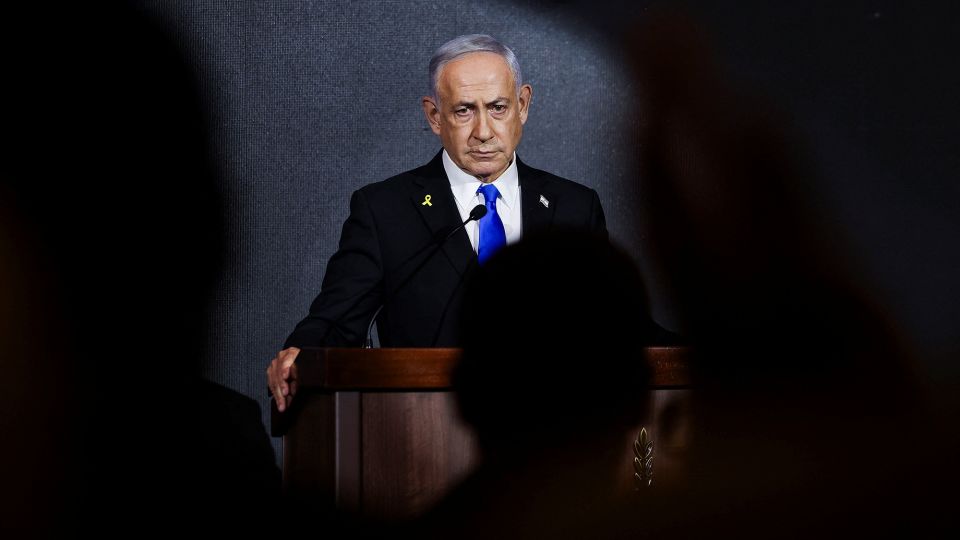With the backing of the United States, a defiant Israeli Prime Minister Benjamin Netanyahu vowed a response to a number of countries recognizing a Palestinian state.
At the weekly government meeting on Sunday, Netanyahu said Israel will fight at the UN and other international forums “against the slanderous propaganda aimed at us,” as well as the calls to create a Palestinian state that he said “will endanger our existence and constitute an absurd prize for terrorism.”
He vowed the international community “will hear from us on this matter in the following days,” a possible reference to internal discussions about annexation of the occupied West Bank. Netanyahu has not said publicly what he intends to do, but in a video statement on Sunday evening he said that Israel’s response would come after he meets US President Donald Trump next week.
Without Trump’s backing, Netanyahu has few options for how Israel would respond. But with that backing – which Netanyahu is clearly signaling he has – the Israeli leader feels he can do just about anything, under a blanket of US diplomatic protection.
The Israeli prime minister hinted at part of what would come. He said Israel has doubled Jewish settlements in the occupied West Bank, which are considered illegal under international law, “and we will continue on this path.”
For weeks, Israel had accused Western countries of recognizing a Palestinian state only for domestic politics reasons, insisting that the symbolic move wouldn’t change the reality on the ground. But now that the moment is here, Israel is lashing out.
Netanyahu’s far-right allies are pushing him to go as far as he can, calling for Israel to annex the entire West Bank or large swaths of it. Finance Minister Bezalel Smotrich said the “only response” is annexation of the entire West Bank and “removing the foolish idea of a Palestinian state from the agenda once and for all.” Minister of National Security Itamar Ben Gvir said he would propose applying sovereignty at the next government meeting and called to dismantle the Palestinian Authority.
Israeli troops stand guard during a weekly settlers’ tour in Hebron, in the Israeli-occupied West Bank, on August 30. – Mussa Qawasma/Reuters
The fact that the UK, Canada, and Australia are considered among Israel’s closest allies did little to blunt their angry reaction or sway their calls for annexation.
Instead of changing Israel’s course, the recognitions only emboldened the government in its diplomatic melee with a growing list of Western countries. The only country Israel needs, according to Netanyahu’s worldview, is the US, and he has gotten the public backing of the Trump administration.
But if the question of a Palestinian state has shown the extent of US support for Israel, it has also shown the limits of US influence elsewhere. During a visit to Israel last week, Secretary of State Marco Rubio said he’d spoken with the countries who were set to recognize Palestine to try to convince them that the move was counterproductive.
“I’ve expressed that to them on multiple occasions,” he said at a press conference last Monday. But none of the countries who said they would recognize a State of Palestine has changed its policy.
The goal of the recognition is twofold: ending the war in Gaza after nearly two years and supporting a two-state solution. But both of those goals seem distant at best, especially as Israel escalates the war in Gaza and unabashedly expands West Bank settlements with the intent of killing the idea of a Palestinian state.
Former Israeli consul general Alon Pinkas predicted that Netanyahu would be unlikely to annex large parts of the West Bank, if at all.
“Even if he does annex, it’s going to be a token annexation of some swath of land in area C that no one (cares) about it,” Pinkas told CNN, referring to the area of the West Bank that falls under Israeli security and civil control.
Israel has “ample warning time” to prepare for the recognition of a Palestinian state, Pinkas said, and to see what steps it would take to convince the countries to pursue other options. “You had enough time for a diplomatic campaign, complimented by alleviating the humanitarian situation in Gaza to show good faith and good will,” Pinkas said. But Israel failed to do that.
Opposition leader Yair Lapid blasted Netanyahu and the countries recognizing a Palestinian state together.
“The same government that brought upon us the worst security disaster in our history is now also bringing upon us the most severe diplomatic crisis ever,” he said on X.
For more CNN news and newsletters create an account at CNN.com

